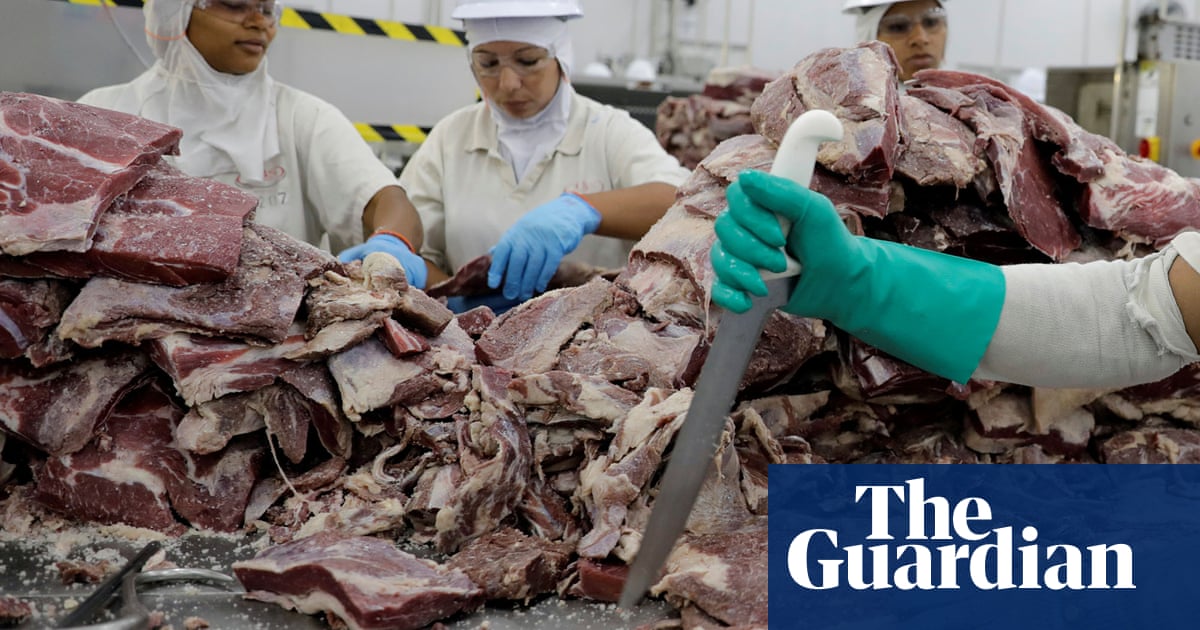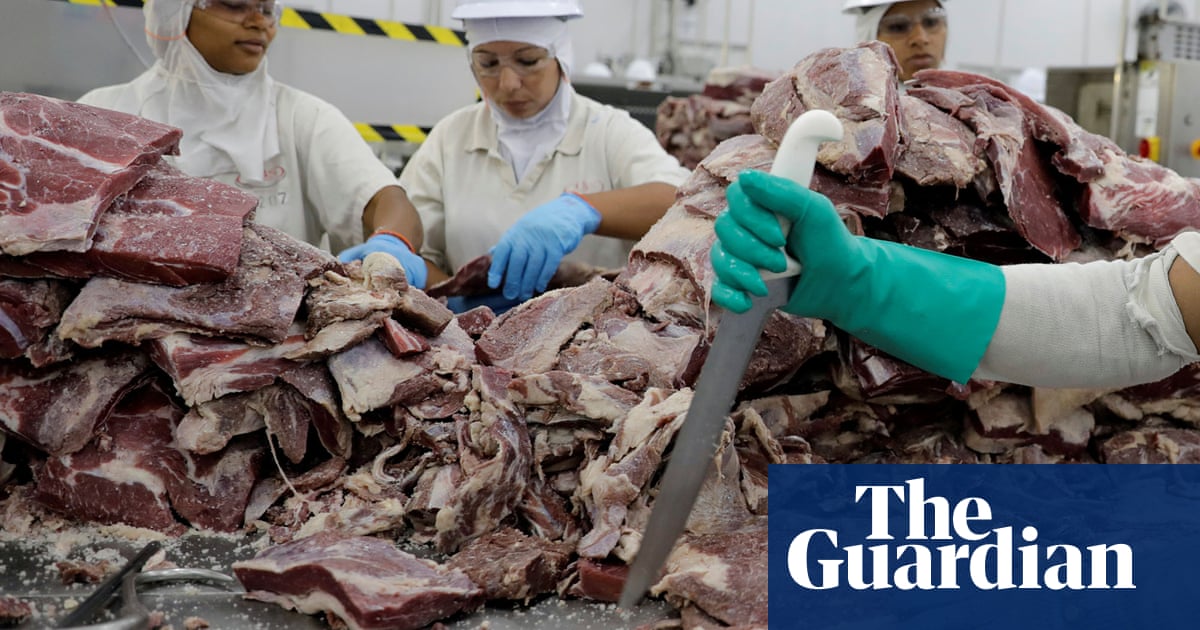Brazils JBS states it cant trace the origins of all stock, as issue grows over logging connected to beef market

The world’s most significant meat business has actually regularly been implicated of links to logging. Now JBS is dealing with growing pressure from Brazilian political leaders and ecologists to deal with the details spaces and openness failings in its supply chain.
Critics state these shortages suggest JBS is not able to guarantee it does not purchase livestock from farms associated with unlawful logging over a years after appealing to do so .
Senator Fabiano Contarato, who commands the environment commission, has actually required Brazil’s environment and farming ministers to participate in a Congress hearing. “These realities are major and they ought to be examined carefully,” he stated. “This is a kind of livestock laundering.”
Amid installing outrage over damage to the Amazon from logging and fires connected to livestock farming, the meat business’s absence of openness is significantly out of action with international financing. The world’s biggest possession supervisor BlackRock has actually now made sustainability important to investing. The environment crisis controlled the 2020 World Economic Forum at Davos .
But JBS stays not able to keep track of a substantial percentage of its providers regardless of running deep in the Amazon. It is an issue for the whole meat market in Brazil, however other business, such as Marfrig, have actually come tidy about the scale of the problem , and are acting to solve it. JBS has actually declined to respond to direct concerns about precisely how much of its beef comes from so-called “indirect providers”.
Further criticism has actually been levelled at the audits done on the JBS supply chain, which specify freely that there is “no confirmation system” in location for indirect providers.
“This is absolutely versus ethical concepts in relation to its customers,” stated Marina Silva, a previous environment minister who won global awards for decreasing logging and required an accreditation program. “These audits wind up as more of a smokescreen.”
Last year joint investigative work by the Guardian, Reprter Brasil and the Bureau of Investigative Journalism revealed the method that worldwide meat need was driving Amazon logging and exposed that fires were 3 times more typical in Amazon beef farming locations.
JBS runs advanced look for livestock reaching its slaughterhouses from Amazon”complete cycle” farms– where livestock are raised from birth to massacre. These farms are likewise called “direct providers”.
“The JBS tracking system in the Amazon covers more than 280,000 sq miles, a location bigger than Germany, and evaluates more than 50,000 prospective cattle-supplying farms every day, “the business stated. “To date, we have actually obstructed more than 8,000 cattle-supplying farms due to noncompliance. “
But this is just part of the image. JBS does not keep track of indirect providers in its supply chain. These are farms where livestock are birthed, or those who offer to farms where livestock are fattened, who then offer on to other farms or to slaughterhouses.
Marfrig, JBS’s most significant rival confesses that half its livestock in the Amazon originate from such providers, however JBS up until now has actually declined to provide figures to the Guardian’s direct concern. Which, state scientists, ecologists and district attorneys, is a huge issue.
“Cattle supply chains are truly fluid and manufacturers can move in between the various functions and frequently offer as both indirect providers and direct providers,” stated Holly Gibbs, a teacher of location at the University of Wisconsin who has actually kept track of Amazon livestock supply chains for a years. Her research study revealed that 80% of direct providers in the Amazon purchased from other residential or commercial properties– usually approximately 15 of them.
“Direct providers typically own numerous residential or commercial properties however just one is home is kept track of,” she stated. “The huge bulk are either surrounding or within 1km.”
She compared the system to utilizing cooling in a heatwave however leaving the windows open. “The livestock business are keeping an eye on direct providers however there are many loopholes that the indirect providers can simply be available in and out,” she stated.
Last year Marfrig informed the Guardian that 53% of its livestock purchases originated from indirect providers. JBS declined to go over how numerous of its livestock came from indirect providers and decreased to make a representative offered for interview.
“JBS is devoted to eliminating logging, making sure sustainable animals practices and enhancing the incomes of farmers in the Amazon area,” the business stated by e-mail. “We have actually worked for more than a years on the frontlines, driving significant, accountable modification in the area. We prompt those who share the typical objective of ending logging to look for services instead of criticism. We will just fulfill this cumulative difficulty and maintain this crucial biome through cooperation and action.”
But the business has actually been making these guarantees for more than a years. In 2009 a disastrous report from Greenpeace caused JBS, Marfrig and Minerva (another Brazilian meat giant) signing a landmark livestock contract with the ecological NGO. The meat business assured not to purchase from any direct providers associated with logging and to broaden that dedication to consist of indirect providers within 2 years.
The very same year federal district attorneys in Amazon mentions signed contracts with more than a lots meat business, consisting of JBS, Marfrig and Minerva.
“It was a watermark,” stated Greenpeace Brazil’s senior forest advocate Adriana Charoux.
Deforestation fell later on, stated Daniel Azeredo, a federal district attorney who played an essential function in the district attorneys’ offer.
But he kept in mind: “It spoke about the direct providers, those that offer to slaughterhouse, not those who offer to another farm.” A provision in the offer needing business to begin keeping track of indirect providers had no due date, he stated.


Recent Comments